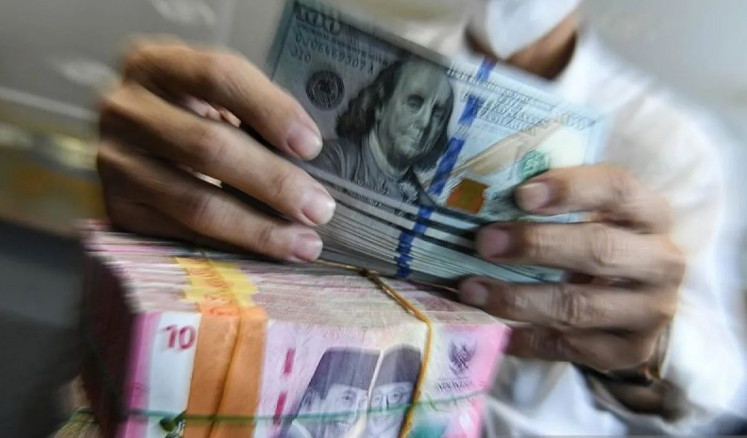Popular Reads
Top Results
Can't find what you're looking for?
View all search resultsPopular Reads
Top Results
Can't find what you're looking for?
View all search resultsEditorial: Bold move in palm oil
The devil is in the details
Change text size
Gift Premium Articles
to Anyone
T
he devil is in the details. This saying is quite relevant for Indonesian and Malaysian officials making preparations for the establishment of a cartel-like organization called the Council of Palm Oil Producing Countries (CPOPC) that both governments agreed on in Jakarta early this month.
It was the first time that both countries, which control about 85 percent of global palm oil production but which have so far been competing fiercely against each other in the international market, agreed on concrete cooperation in controlling the palm oil market, which has been in a slump since last year.
Coordinating Maritime Affairs Minister Rizal Ramli, who led the Indonesian delegation at the meeting with Malaysia's Plantation Industries and Commodities Minister Douglas Unggah in Jakarta last week, said the CPOPC would jointly promote the marketing of palm oil and its products, conduct palm oil research and development and harmonize the principles and criteria used for their respective certification of sustainable palm oil.
Consumer organizations and international green campaigners that dominate the 10-year old Roundtable on Sustainable Palm Oil (RSPO) may immediately give a thumbs down to this new organization, given the disappointing performance of a similar organization, the International Tripartite Rubber Council, in propping up the market even though its three members ' Indonesia, Malaysia and Thailand ' control about 70 percent of world supply.
On a positive note, though, the market slump that has driven down palm oil prices to an all-time low may have strengthened the resolve of both countries to be strongly united in controlling the palm oil market through the management of the supply-demand equation. After all, the two countries control 85 percent of global supply and palm oil accounts for more than 62 percent of global edible oil.
Indonesia and Malaysia apparently have long been attacked by international green NGOs and consumer organizations within RSPO that have constantly criticized the industry, especially in Indonesia, the world's largest producer, for what they call unsustainable palm oil production practices. The two countries also see international certification procedures imposed by RSPO as too costly and unaffordable to smallholders.
If they can work together under an atmosphere of strong mutual trust, they may be able not only to prevent palm oil prices from collapsing, like they are now because of falling demand, by controlling supply to the international market, but they may also harmonize the principles and criteria applied in the Indonesia Sustainable Palm Oil and Malaysia Sustainable Palm Oil certification schemes.
There are actually no fundamental reasons, nor big differences, as to why Indonesia and Malaysia cannot nurture strong mutual trust and strong cooperation in this industry because Malaysian companies have been a big player in Indonesia's palm oil industry since 2000 and hundreds of thousands of Indonesian laborers work on Malaysian oil palm estates.
Moreover, this commodity plays a very important role in both economies as a major export commodity and employer.










